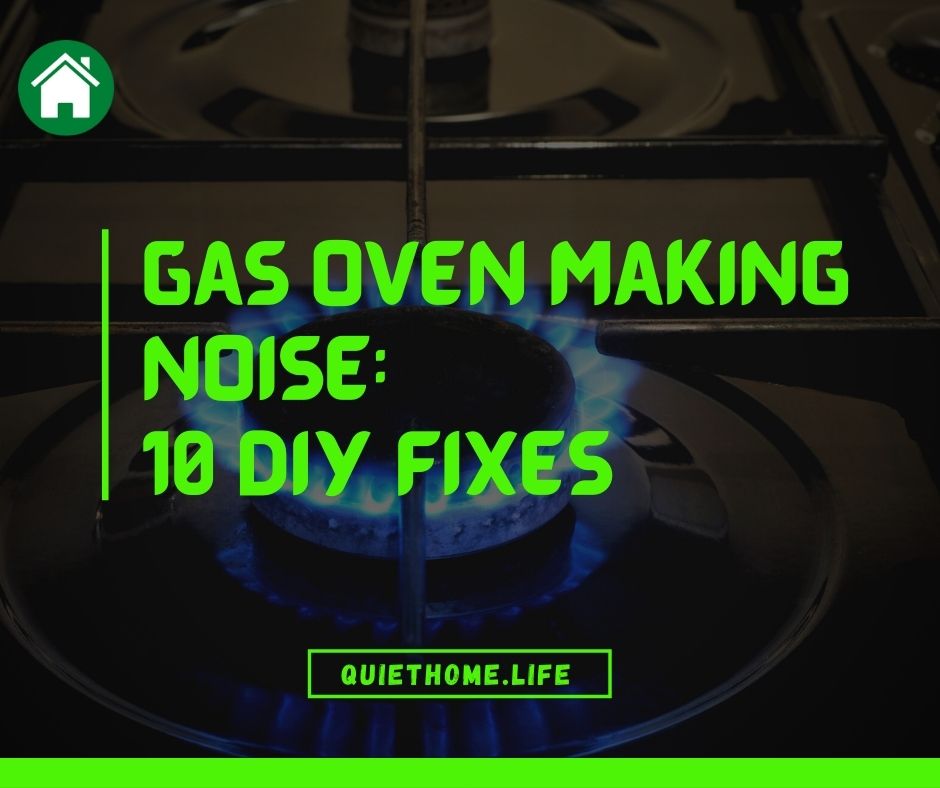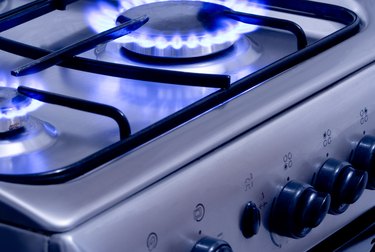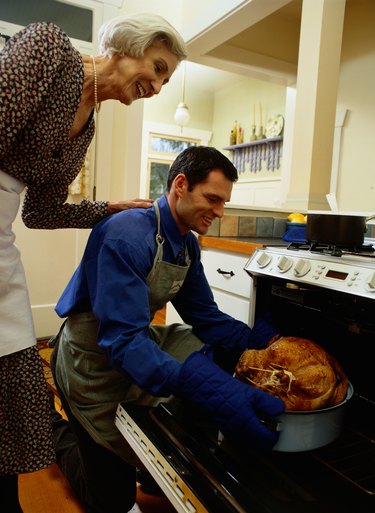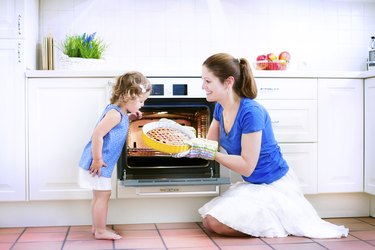Gas ovens are preferred in many cooking circles for their even and fast cooking results. While gas ovens are relatively quiet, its common to hear the sounds of the gas running to the unit. On the other hand, smelling gas isnt normal and requires immediate service. You may need to call your gas provider, the ovens manufacturer or the retailer which provided an extended warranty.
Often when you use a gas oven you can hear the gas running to the unit during the operation. As the gas runs through the pipes, you might hear a hissing or whooshing sound. You may also hear a clicking noise as the ignition lights the flame. Afterward, you may hear a hissing or whooshing sound as the oven burner cycles on and off to regulate the temperature of the oven cavity.
Gas ovens are known to make very low sounds, but sometimes they may start making noise that may not sound normal, you should know something is wrong. A gas oven can make different sounds from a roaring noise, boom noise, puffing sound, whooshing sound, high pitched noise, and a blowtorch sound.

If You Don’t Hear It
If you dont hear the gas running in your gas oven, its not necessarily a problem as long as the oven is still operating correctly. The absence of sound along with the absence of a flame indicates gas is not getting to the unit. Check that gas services to your home are on. Then check that gas oven has a line connected to the gas valve and that the valve is open. If all of these things are in working order, you need service to your unit.



While hearing the gas is normal, smelling it is never normal. If you smell gas, do not attempt to turn on the oven or any other appliance in the room. Do not turn on an electrical switch and do use a phone. All of these things can cause a fire or explosion if there is a gas leak in the room. Instead, leave the building immediately and call for service from a safe place.



Who you call depends on what the problem is. If you are calling because you suspect a gas leak, call your gas provider and select the option for an emergency service. If there isnt an emergency, determine whether your gas oven is under warranty. If its still under the manufacturers limited warranty, contact that company. If you bought an extended warranty from the retailer, contact that company. If you dont have any warranty on the unit, contact the manufacturer because it can offer you a limited amount of support and also direct you to a service provider in your area that has experience working with its appliances.
Advertisement Hunker may earn compensation through affiliate links in this story. Learn more about our affiliate and product review process
Gas Range – Sounds made during cooking
FAQ
Why is gas oven making noise?
Should I be able to hear my gas stove?
Is it normal for oven to make noise when on?
What does an oven gas leak sound like?
Why does a gas oven make a noise?
Gas valve Gas ovens make a noise when the gas valve opens and shuts. This is normal and should not be a cause for concern. The sound is caused by the pressurization of the gas supply and is heard as a high-pitched hum or whine. The sound generally increases as the temperature rises in the oven.
Why does my gas oven make a popping sound?
Usually, a faulty gas valve causes a puffing sound. But it can result in clicking noise sometimes. If the flow of gas is too high, the gas oven might emit clicking noises. In that case, call a professional and get it inspected immediately. Is your gas oven emitting Popping sounds? A gas oven makes a popping sound for various reasons.
Why does a gas oven make a puffing sound?
Out of all the weird noises, a gas oven makes puffing sound too. The following reasons can cause such a sound: The gas valve controls the flow of gas into the igniter. If the gas valve is faulty, it will send a high rate of gas into the igniter, even before the ignition occurs. This causes a puffing sound.
Why does my oven sound like a blowtorch?
If you hear a noise that sounds like a blowtorch coming from your oven, this is an indication of a very serious problem. This usually happens when the gas ignites but then continues to burn after the flame has been extinguished. This can cause a dangerous build-up of gas and can lead to an explosion.
